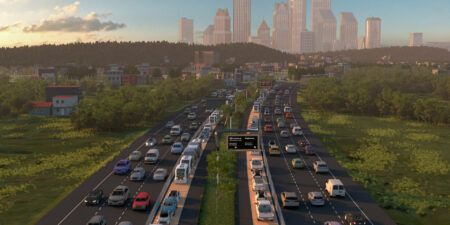Honda has announced that the theme for its participation at the 2017 Consumer Electronics Show (CES) in Las Vegas, Nevada, on January 5-8, will be a ‘cooperative mobility ecosystem’, which will harness the power of artificial intelligence (AI), robotics, and big data to transform the mobility experience.
Honda says its stand will feature interactive and immersive experiences that are designed to showcase a future technology path toward a redefined mobility experience. From reducing traffic congestion to creating new modes of in-car connectivity, visitors will have an opportunity to explore and demo technologies with the potential to make people’s lives better. The exhibit will include the NeuV, a concept automated electric-powered commuter vehicle equipped with AI called ’emotion engine’ that creates new possibilities for human interaction and new value for customers. The ’emotion engine’ is a set of AI technologies developed by Cocoro SB Corp, which enable machines to artificially generate their own emotions.
Continuing its pursuit of open innovation and collaboration, Honda also will announce initiatives with startups and global brands that will create a more productive and enjoyable mobility experience. The January 5 Honda press conference at CES will feature a keynote address from Yoshiyuki Matsumoto, president and CEO of Honda R&D Co., who will unveil a concept motorcycle demonstrating an application of the company’s robotics technology. Honda says it is creating technologies and products that advance the company’s clean, safe, fun and connected brand values, with its efforts including advancements in automated vehicles, connectivity, and ultra-low carbon mobility.
In North America, the company has more than 300,000 vehicles on the road equipped with the Honda Sensing or AcuraWatch safety and driver-assistive technologies and more than 400,000 vehicles featuring Apple CarPlay and Android Auto compatibility. Honda also is testing advanced automated vehicle technologies in Japan and North America, and is targeting 2020 for the deployment of highly automated vehicles on US highways.
The Japanese auto maker is also working to fulfill its environmental and safety vision: ‘to realize the joy and freedom of mobility, and a sustainable society where people can enjoy life.’ Toward this target, Honda is striving to make two-thirds of its global automobile sales from hybrid, plug-in hybrid and electrified vehicles, including fuel cell and battery electric vehicles by around 2030.




